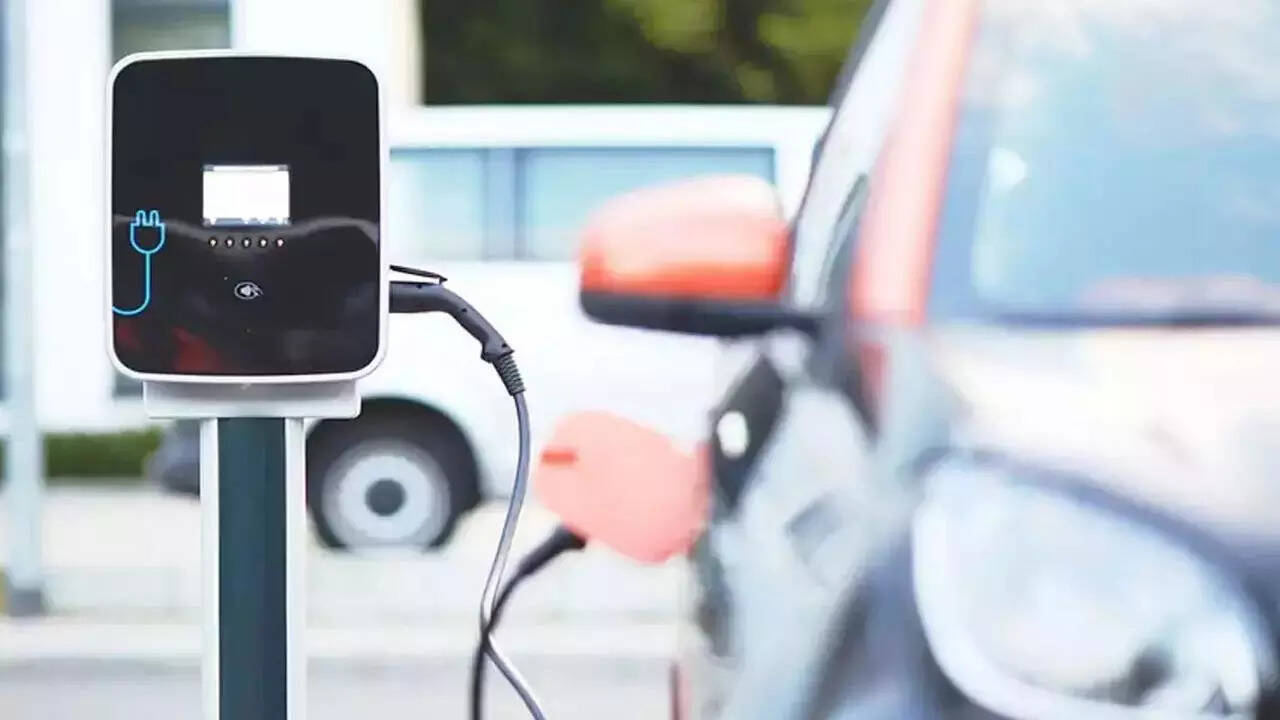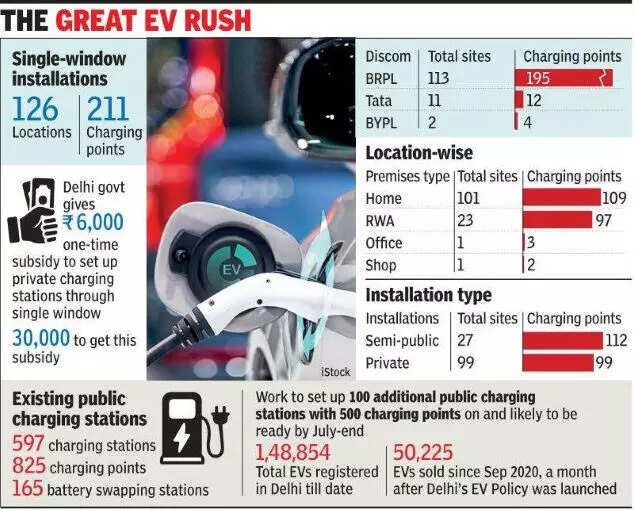
NEW DELHI: With the growing demand for electric vehicles in the city, the Delhi government has intensified its efforts towards strengthening EV chargers at public, semi-public and private spaces.
Since the launch of the single-window facility for installing private charging points, over 200 chargers have come up at 126 locations across the city. Senior government officials said more than 200 applications were currently pending and the charger manufacturers had been told to complete the orders at the earliest.

As per the government data, the maximum number of EV charger installations, at 113 locations, has taken place in south and west Delhi, which are catered to by discom BSES Rajdhani, followed by 11 in north Delhi under Tata Power Delhi and the least, two, in east Delhi under BSES Yamuna. While 101 individuals have set up charging points at home, 23 resident welfare associations (RWAs) have created the facility in the colonies. One shop and an office complex have also installed the charger.
To promote EV adoption, the Delhi government has initiated the single-window facility where the consumers, via an online portal, Switch Delhi, can get a private EV charging point installed at their home, group housing societies, multistorey apartment complexes, RWAs’ offices and commercial shops through discom-empanelled vendors. Under the policy, 12 private vendors have been empanelled with BSES.
To promote the scheme, the government is offering a one-time subsidy of Rs 6,000 for the first 30,000 charging points. EV chargers can be bought by consumers on the CAPEX and subscription models, under which they can either make the full payment upfront or pay in equated monthly instalments. Chargers can be bought through agencies empanelled with the power supply discoms.
The government’s think-tank, Dialogue and Development Commission (DDC), and World Resource Institute earlier this year released guidebooks for office complexes, shopping malls and residential societies to understand the importance of EV charging, the processes involved in planning, installing and managing EV charging stations in the available parking space.
“We are creating awareness among the public on the importance of having an EV charging network and the installation benefits being extended by the government. We have done one round of outreach programmes with shopping malls, office complexes and housing societies, and will soon have another round,” DDC vice-chairman Jasmine Shah said.
Besides private charging points, Delhi now has 825 EV chargers at 597 locations. Shah said 500 more chargers at 100 locations, for which the Delhi government floated a tender earlier this year, would be installed by the end of July. “Experience across the globe indicates that availability of charging infrastructure is a key driver for EV adoption,” said a senior government official.
In its journey towards becoming the country’s EV capital, Delhi last week saw the number of EV sale crossing the 50,000-mark since the launch of the EV policy in August 2020. Announcing it, chief minister Arvind Kejriwal had said the policy aimed to ensure that 25% of all new vehicle registrations be EVs by 2024.







